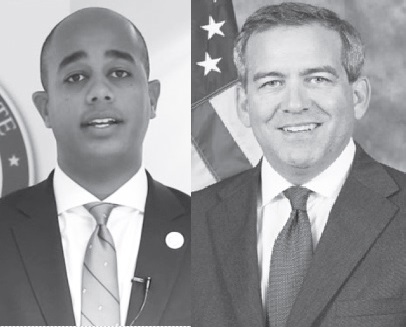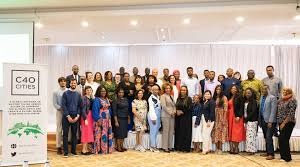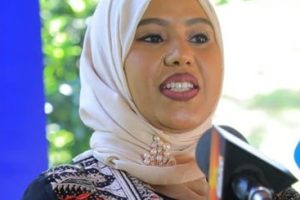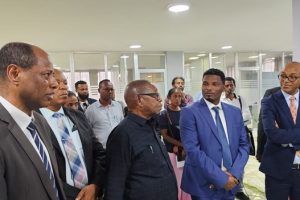
United States expresses its readiness to actively looking for projects and deals to support the country through increasing Overeseas Private Investment Corporation (OPIC), so disclosed by OPIC head staffs.
In the telephone briefing to the journalists drawn from numbers of countries, Managing Director for Africa at OPIC, Worku Gachou said that as we look at development, we look across all sectors that we think are key to economic growth in that country, and that can improve livelihoods of those in that community. And so we look at projects as our president and CEO said, in infrastructure, in housing, in energy, and in education.
Added he said that Ethiopia is a priority country for us, and we are actively looking for projects and deals to support in the country.“ I have recently traveled to Ethiopia; our president and CEO has also traveled to the country. We’re excited about the opportunities and the potential that the country has for economic growth and increased OPIC commitments” he said.
Acting President and Chief Executive Officer of the Overseas Private Investment Corporation (OPIC), David Bohigian on his part pointed out that we will also be focused more on economically empowering women, where today we’ve already mobilized more than 1 billion USD, and Senior Advisor Ivanka Trump and I traveled to Ethiopia earlier this year to talk about the Africa piece of the 2X initiative. We’re also working on our Connect Africa initiative, which takes into account the needs and infrastructure and telecommunications and technology, as well as value chains throughout Africa to make Africa more connected with the world.
Regarding the activities of US investment in Africa, he stated that the Overseas Private Investment Corporation has over 5 billion USD invested in Africa, which catalyzes billions of dollars more, and that kind of investment really promotes stability, prosperity, connectivity, and trade. And why we’re here today to talk about the launch in less than two months of the Development Finance Corporation. It really is one of the biggest changes in U.S. foreign policy this century, and it’s giving the United States significantly more resources to invest in development. Today I mentioned we’ve got about 5 billion USD in Africa that’s catalyzing billions of dollars more; we expect that to significantly increase with Development Finance Corporation.
He further said that what we’re seeing is that when the U.S. government invests alongside the private sector, it can mobilize significant capital and it’s an important factor for other investors to be willing to come in and develop infrastructure and develop other needs for countries there. We’re invested throughout the continent right now in private equity, as well as political risk insurance and project finance across just about every sector of business and investment. And it’s the kind of projects that private capital wouldn’t do on their own.
He remarked that this agency is going to advance U.S. investment in emerging economies around the world, with a continued strong focus in Africa. It’ll build on the U.S. commitment to Africa that’s been expressed for almost 50 years through the Overseas Private Investment Corporation, where OPIC has worked to mobilize private investment in projects that have built everything from hospitals and power plants to schools, affordable housing, healthcare, and financial services, to really help develop the critical infrastructure and societal needs in Africa.
About the US investment’s involvement and sector magnitudes, Worku noted that we want to reemphasize our Connect Africa initiative. Last year, we committed a billion dollars to supporting three verticals: the ICT space, value chain manufacturing, and transport and logistics. On that first vertical, the ICT sector, we are looking to increase data access and data connectivity, recognizing the economic benefits of ensuring that people have reliable and affordable access to the internet and mobile operators will help livelihoods.
“On the value-added manufacturing, we are trying to move away from the perennial issue on the continent of exporting goods raw. If we can support local manufacturing and local value-added additions, we can then in turn ensure that wealth generation, job creation is appreciated on the continent.” He added
As to him, the third vertical, transport and logistics, we are trying to address the astronomical costs of moving goods on the continent by supporting strategic infrastructure, like roads, rail, airports, and ports, but by also supporting technology and innovation that’s ensuring that logistical companies and other long-haul trucking companies are utilizing technology to ensure efficiency and ensure that, you know, drivers are connected with goods.
The Ethiopian Herald, August 18/2019
BY MEHARI BEYENE





